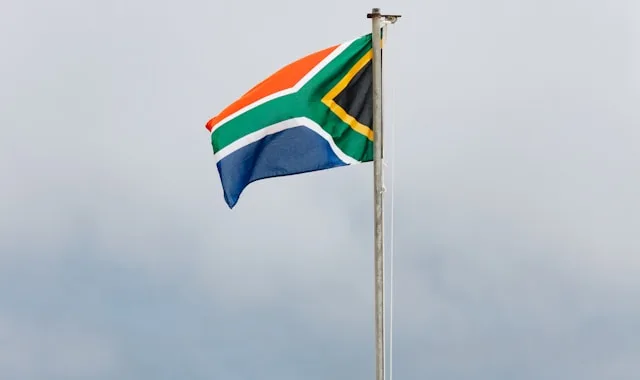The ANC acknowledges Gwamanda’s resignation as part of a broader reconfiguration strategy, with a new mayor expected by Friday
The resignation of Kabelo Gwamanda as the executive mayor of Johannesburg has been officially confirmed, with the African National Congress (ANC) expressing its gratitude for his service. Announced on Tuesday morning, Gwamanda’s departure marks a significant shift in the city’s political landscape.
Masilo Serekele, spokesperson for the ANC’s Johannesburg region, described Gwamanda’s resignation as a natural outcome of the ongoing reconfiguration efforts within the party. Serekele stated, “From where we are sitting, the resignation has been long coming. It is part of our reconfiguration efforts that the ANC has been undertaking for some time. We are in the reconfiguration process and by Friday we should elect a new mayor.”
Embed from Getty ImagesThe ANC also praised Gwamanda for his professionalism throughout his tenure. “Kabelo has adhered to the engagements that we have been having with Al Jama-ah for some time. As the ANC, we want to honour him for gracefully honouring the discussion in a very, very professional way,” Serekele added. Despite the challenges he faced, including managing the largest metropolitan area in South Africa, Gwamanda’s efforts were recognized as significant, albeit not without difficulties.
The resignation comes amid growing pressure from civic organizations and public discontent. Over recent months, there has been a concerted effort to remove Gwamanda from office. Protestors criticized his administration for poor service delivery, delays in infrastructure projects, and steep increases in tariffs, notably the controversial R200 energy surcharge.
In the wake of Gwamanda’s resignation, speculation has already begun about his successor. Reports suggest that Dada Morero, the incumbent Finance Member of the Mayoral Committee (MMC) for Johannesburg, is a leading candidate to replace Gwamanda. An official announcement about the new mayor is anticipated by the end of the week.
The ANC is scheduled to hold a media briefing later today to provide further details on the transition and the future direction of the city’s leadership. This briefing will likely shed more light on the upcoming election for the new mayor and the ANC’s plans for addressing the issues that led to Gwamanda’s resignation.
Analysis
Political Gwamanda’s resignation represents a significant political development for Johannesburg, signaling a shift in the ANC’s strategy for managing the city. The ANC’s reconfiguration efforts highlight its responsiveness to internal and external pressures, as well as its strategy to address governance challenges. The transition period, with a new mayor expected soon, will be crucial for the ANC to stabilize its leadership and regain public confidence.
Social The resignation reflects a broader societal dissatisfaction with the current state of local governance in Johannesburg. Civic organizations’ protests and the public’s criticism of service delivery and tariff increases underscore the growing frustration among residents. This social unrest emphasizes the need for effective leadership and responsive governance to address the concerns of ordinary citizens.
Racial The political shift in Johannesburg also carries racial undertones, as the city’s diverse population grapples with issues of equitable service delivery and representation. The resignation of Gwamanda, an African mayor in a city with significant racial and ethnic diversity, highlights ongoing challenges related to racial equity and the effectiveness of governance structures in addressing the needs of all communities.
Gender Gender dynamics, while not a primary focus of the resignation, remain relevant in the context of leadership transitions. The appointment of a new mayor could bring a shift in gender representation in Johannesburg’s executive leadership. The political discourse around Gwamanda’s resignation and his replacement could influence future discussions on gender balance in city governance.
Economic Economically, Gwamanda’s resignation and the transition to a new mayor are likely to impact public confidence and investor sentiment in Johannesburg. The criticisms regarding infrastructure delays and tariff hikes have economic implications, affecting business operations and resident satisfaction. The new mayor will need to address these economic challenges to foster stability and growth in the city.
